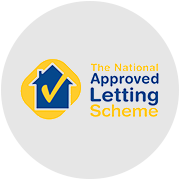
Whether you want to rent a room, a flat, or even a house, it's important to know the ins and outs of the whole process. From arranging viewings to ensuring your finances are up to scratch, this guide from s1homes will arm you with all the information you need to find the perfect property.
Property hunting is always good fun. It can be incredibly exciting to check out properties in your area and when you find the 'one', there's always an exhilarating rush. But it's not just as simple as turning up to the first home you see advertised and moving straight in. Of course, very occasionally that may very well be the case – but you shouldn't bank on it.
Instead, you first need to carefully consider exactly what sort of property you need. What's your lifestyle? If you're living alone or are barely at home, a smaller flat may be ideal. However, if you're with a partner and even kids, a larger property would likely be a better fit.
Don't just think about the size of the property though. Do you drive? If so, you'll need a parking space. Do you already have furniture? If not, furnished accommodation could be considered.
Other questions to consider include:
These are the sorts of questions you must consider, so write down all the essentials and nice to haves you can think of – before arranging your first viewing.

Even once you have your dream property in mind, the decisions are still coming thick and fast. Do you rent privately or go through an agent?
The recommended option would be to choose an agent. Why? Because it simply offers the best protection when you're renting any Scottish property and guarantees a certain security as they are registered with a trading body or similar association. Necessary work is more likely to be done on time, and there should be fewer disputes over matters such as deposits.
Professional bodies include:



See the individual websites to find out what is and isn't covered by each association
All landlords of private tenancies have to be registered with their local authority - by law – to prove they're ‘fit and proper' to let a property. If your landlord has not registered either themselves or their property, they are committing an offence - unless there is an exemption on the property. Visit the Scottish Government website for more information about private landlord registration.
On the other hand, it may be more expensive than renting directly from a private landlord. Also, letting agencies rent complete properties - for instance, flats rather than rooms in flats - on behalf of the owners, so if you're a looking for a standalone room, private renting would be better.
Whichever route you decide to take, when you decide to let a property there is one thing you need to consider; be quick.
There is high demand for good quality rented accommodation, particularly in desirable residential areas and around universities and colleges. Make sure you check s1homes every day, and when you see something you like, get in touch with the landlord or agency to organise a viewing as soon as you can.
These days, owning your own home is the holy grail of the property market – but unfortunately this isn't a feasible option for everyone. Buying your own property is becoming more and more expensive as the years roll by – so renting presents an opportunity to have your own space, whilst saving up at the same time.
Of course, one of the major perks is that bills are a lot more predictable – for instance, you won't be left trying to negotiate an expensive boiler repair fee. This would instead be fronted by the landlord.
The flexibility is also ideal for many people – why be tied to one area by owning a property? Instead you can be as flexible as work needs you to be – ready to up and move at a whim.
But, what about you and your circumstances. Should you buy or rent? Let's take a look at the pros for both arguments.
Future investment: If you're lucky enough to have a healthy deposit gathering dust in your bank account, buying a property outright can certainly make sense. After all, you'll be investing in your future and paying off your own mortgage, rather than someone else's.
Enjoy extra freedom: Want to extend the property? Keen to redecorate? If you own your own home then the opportunities are endless (subject to planning permission), whereas rental properties are up for the landlord's approval. Of course, they're unlikely to be averse to you giving the home a lick of paint though.

Greater flexibility: We've mentioned this previously, but the flexibility of being able to pick and choose where you rent – without the ties of home owning – is certainly worth the thought. You can even test the waters by renting within a new area, before deciding to commit and buy.
No financial responsibility: Renting offers a way to avoid financial responsibility. You don't have a mortgage worth hundreds of thousands of pounds and can't fall into negative equity. Yes, you'll have rental and bill payments, but these should be manageable.
No maintenance costs: If something goes wrong with the roof, the boiler or even the pipework – you're free from stumping up the repair bills. This falls on your landlord's shoulders.
